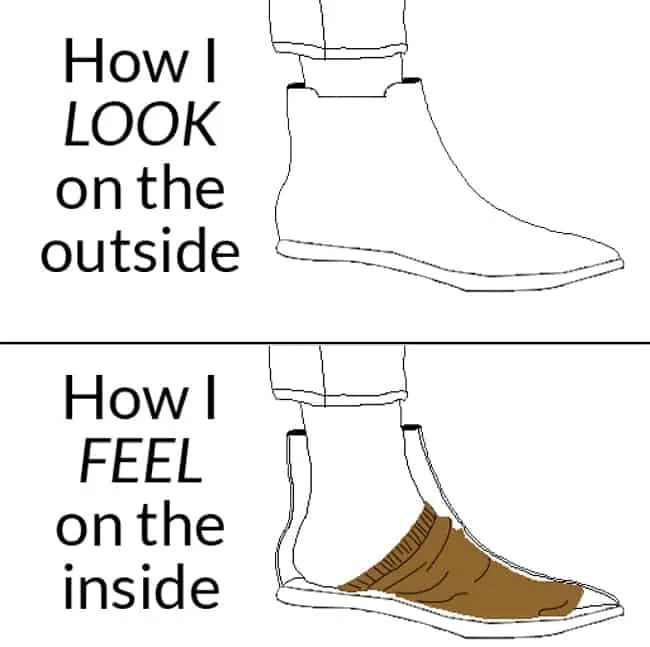
When most people think about depression, they picture someone who struggles to get out of bed, cancels plans, and appears visibly sad or withdrawn. While that can certainly be true for some, depression doesn’t always look the same. Many people live with high-functioning depression—a form of depression that hides behind productivity, success, and outward appearances.
At our Allen, Texas counseling practice, we see many individuals who seem to have it all together on the surface but quietly wrestle with feelings of emptiness, fatigue, and sadness. Whether you come to see us in person or connect with us virtually anywhere in Texas, understanding high-functioning depression can help you recognize when it’s time to seek support.
What Is High-Functioning Depression?

High-functioning depression isn’t a formal diagnosis in the DSM-5 (the manual mental health professionals use), but it often refers to dysthymia, also called persistent depressive disorder. Unlike major depressive episodes, high-functioning depression can fly under the radar because individuals continue to meet responsibilities at work, school, and home.
Someone with high-functioning depression might look like:
- The coworker who shows up early, meets deadlines, and seems dependable, but feels exhausted and empty inside.
- The parent who takes care of their family and never misses a beat, but constantly feels weighed down by sadness.
- The student who gets good grades and participates in activities, but struggles silently with self-criticism and low motivation.
Because these individuals can still “function,” their symptoms are often dismissed by themselves or overlooked by others. But high-functioning depression is just as real, and just as deserving of help, as any other form of depression.
Signs and Symptoms of High-Functioning Depression
The tricky part about high-functioning depression is that it doesn’t always match the stereotypes of mental illness. Common signs include:
- Chronic fatigue – feeling drained even after rest.
- Loss of joy – hobbies and activities that once felt exciting now feel empty.
- Low self-esteem – constant self-criticism or feelings of not being “good enough.”
- Difficulty relaxing – staying busy to avoid negative emotions.
- Changes in appetite or sleep – eating too much or too little, struggling with insomnia or oversleeping.
- Irritability – snapping at loved ones or feeling easily frustrated.
- Persistent sadness or emptiness – even if life appears “fine” externally.
These symptoms may not disrupt daily functioning in obvious ways, but they take a toll on mental, emotional, and even physical health over time.
Why High-Functioning Depression Often Goes Untreated

One of the most challenging aspects of high-functioning depression is that people often don’t realize they’re struggling. From the outside, they’re “doing fine.” On the inside, though, they feel a heavy emotional burden.
Cultural messages like “just be grateful,” “push through,” or “everyone feels stressed” can make people minimize their experiences. In communities across Texas, including here in Allen, we often see individuals who think their struggles aren’t “serious enough” to deserve therapy. The truth is, you don’t have to hit rock bottom to benefit from professional support.
When to Seek Help

If you’ve been experiencing symptoms of depression for more than two weeks—or if sadness and fatigue have become your “normal”—it may be time to reach out. Some signs it’s time to consider therapy include:
- You feel emotionally numb despite appearing successful or productive.
- Your relationships feel strained because of irritability or disconnection.
- You’re relying on unhealthy coping strategies like overworking, oversleeping, or substance use.
- Your inner critic never quiets down, no matter how much you accomplish.
- You feel like you’re “going through the motions” rather than fully living your life.
It’s also important to seek help if you ever experience hopelessness or thoughts of self-harm. These feelings are urgent signals that extra support is needed.
How Therapy Can Help

Therapy for high-functioning depression focuses on helping you reconnect with your emotions, challenge unhelpful thought patterns, and learn healthier coping strategies. Some approaches we use at Foundations Counseling, our Allen, Texas counseling center and through telehealth sessions across Texas include:
- Cognitive Behavioral Therapy (CBT): Helps identify negative thought patterns and replace them with healthier, more balanced perspectives.
- Mindfulness-based therapy and Dialectical Behavior Therapy (DBT): Teaches skills to stay present and reduce constant self-criticism.
- Interpersonal therapy: Supports building stronger, more fulfilling relationships.
- Holistic approaches: Exploring lifestyle factors such as sleep, nutrition, and stress management.
Therapy provides a safe space to slow down, reflect, and receive support without judgment.
Taking the First Step
If you recognize yourself in these descriptions, know that you are not alone. High-functioning depression is common, but it doesn’t have to define your life. Seeking support is a sign of strength, not weakness.
At our Allen, Texas mental health practice, we provide compassionate, individualized care for depression and other mental health concerns. If you live outside Allen, we also offer secure virtual therapy sessions for anyone in Texas, making it easier than ever to access help.
You don’t have to wait until things fall apart to ask for support. Therapy can help you move from just functioning to truly thriving.
Ready to take the next step?
Reach out today to schedule an appointment—whether in person in Allen, TX, or online from anywhere in the state. Let’s work together toward healing, balance, and a life that feels meaningful again. Fill out the contact form below to get started.
